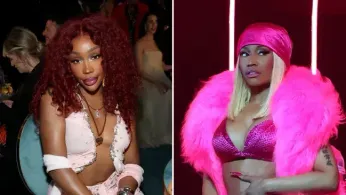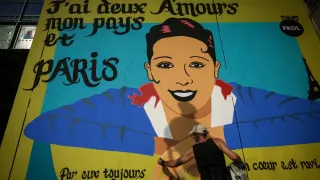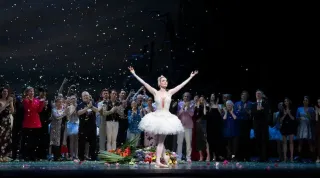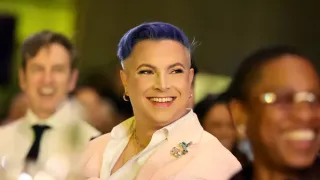
4 hours ago
SZA and Nicki Minaj’s Public Feud Escalates
READ TIME: 3 MIN.
The roots of the feud between SZA and Nicki Minaj trace back several years, reportedly originating with a rejected collaboration in 2020. This simmering animosity resurfaced in July 2025, when Nicki Minaj took to social media to allege that SZA’s management company, Top Dawg Entertainment (TDE), and its president, Terrence "Punch" Henderson, had bullied her in professional settings. These claims reignited speculation about longstanding industry tensions between the two artists, each renowned for their chart-topping hits and cultural impact .
The public exchange began on July 15 with a heated interaction on X (formerly Twitter), where Minaj’s accusations were swiftly met by SZA’s own posts. SZA, in turn, hinted at professional sabotage and addressed the situation further on Instagram, stating she had tolerated many things in the past but would not remain silent when her family was targeted .
The back-and-forth quickly escalated, with Minaj using her influential Queen Radio show to describe an incident she labeled “mortifying and humiliating,” reportedly involving members of TDE at a high-profile event. She recounted feeling deeply disrespected in a public setting, amplifying the narrative of being targeted within the industry .
SZA responded not only with statements but also by sharing what she described as proof that Minaj had previously sought her out for a musical collaboration—contradicting Minaj’s claims that SZA was “fake” and a “hater.” This exchange of “receipts” has added a new dimension to the feud, with fans dissecting each detail and questioning the authenticity of both parties’ claims .
Minaj’s social media posts turned especially pointed, dismissing SZA’s music and taking aim at her public persona. She claimed that if “every song ever done vanished right now, the music business wouldn’t even miss you,” further inflaming passions among their respective fandoms .
The feud has ignited important conversations about the challenges Black women face in the music industry, including the intersections of misogynoir, reputation politics, and the pressure to compete rather than collaborate. For many LGBTQ+ fans, both SZA and Minaj represent icons of unapologetic self-expression and resilience, making the conflict especially poignant.
Commentators have pointed out that highly publicized disputes between women—particularly Black women—are often sensationalized, reinforcing harmful stereotypes. The narrative of “diva feuds” can overshadow the real structural barriers both women have faced and the solidarity often present within marginalized communities . As the feud unfolds, LGBTQ+ advocates urge a nuanced perspective, recognizing the artists’ contributions to visibility and empowerment while challenging the industry’s tendency to pit successful women against each other.
For LGBTQ+ listeners and music lovers, the SZA-Minaj feud resonates on multiple levels. Both artists have been vocal about embracing queer fans and centering themes of self-acceptance in their work. Their music often serves as a soundtrack for queer self-discovery and celebration, which is why the public fallout feels especially personal to many in the community.
The dispute has prompted some LGBTQ+ fans to reflect on the importance of unity and mutual support among artists who are themselves navigating industries that have historically marginalized both women and LGBTQ+ people. “We can love both artists, critique the situation, and still demand accountability from the music industry as a whole,” said Maya Lopez, an organizer with the LGBTQ+ advocacy group OUTspoken Voices (Instagram: @OUTspokenVoices), in a statement released July 17, 2025.
As both SZA and Nicki Minaj continue their respective tours and projects—SZA with a global run alongside Kendrick Lamar, and Minaj celebrating her chart-topping collaboration with Lil Wayne—the industry watches for signs of reconciliation or further escalation. For many LGBTQ+ fans, the hope is that this moment will catalyze deeper conversations about solidarity, representation, and the power of music to unite rather than divide.






